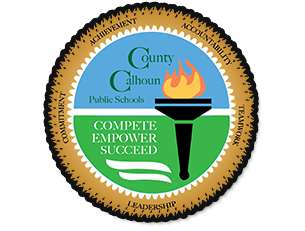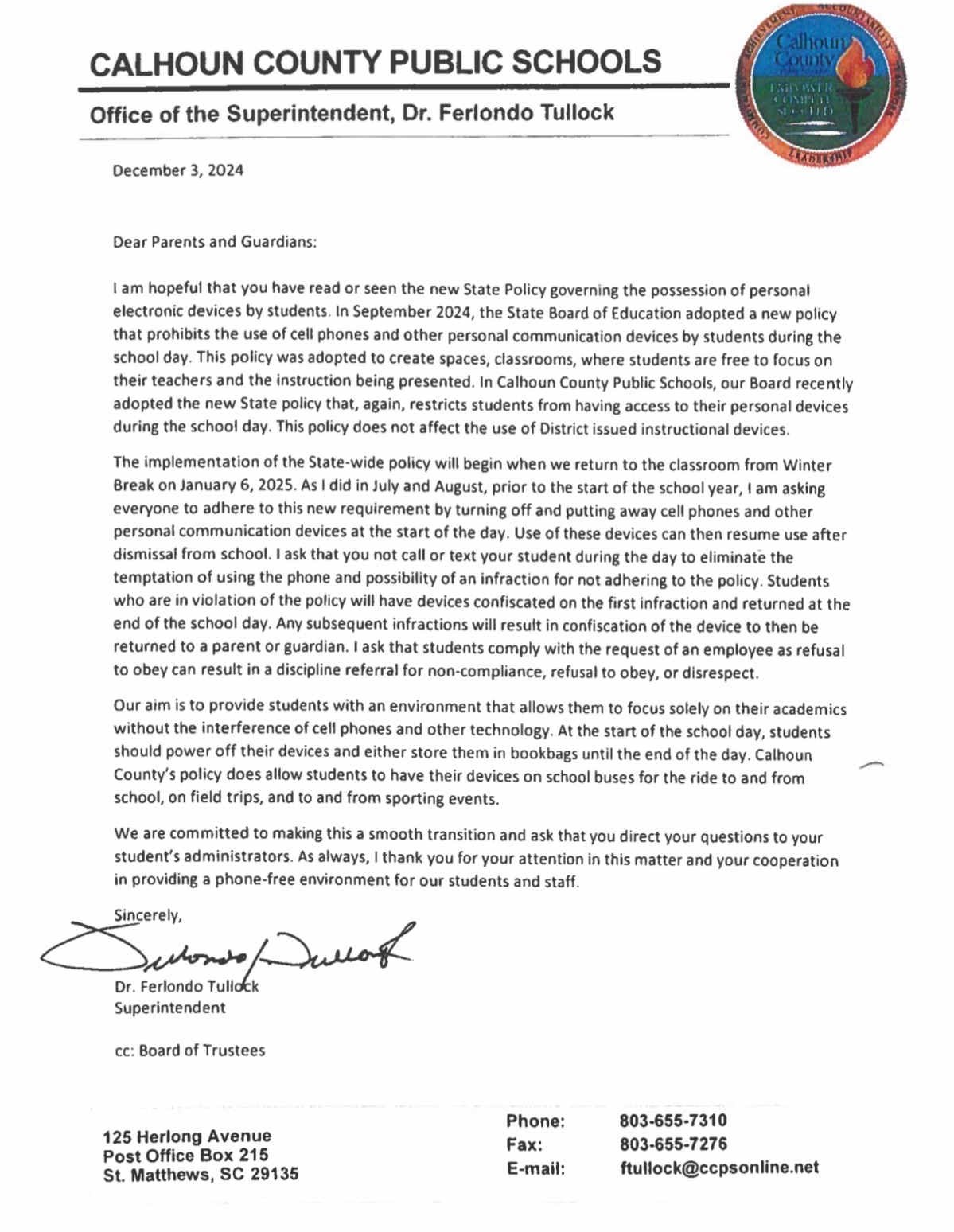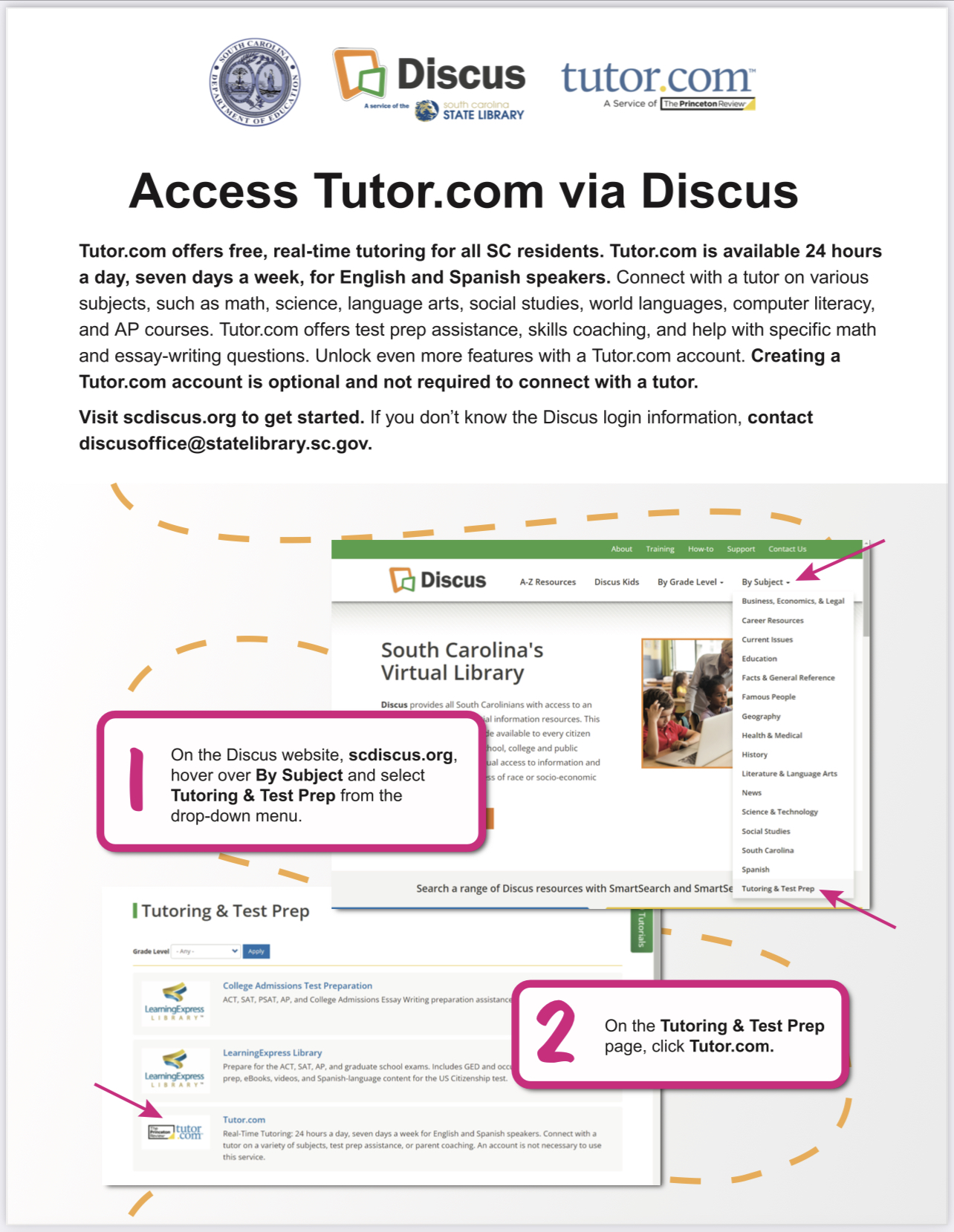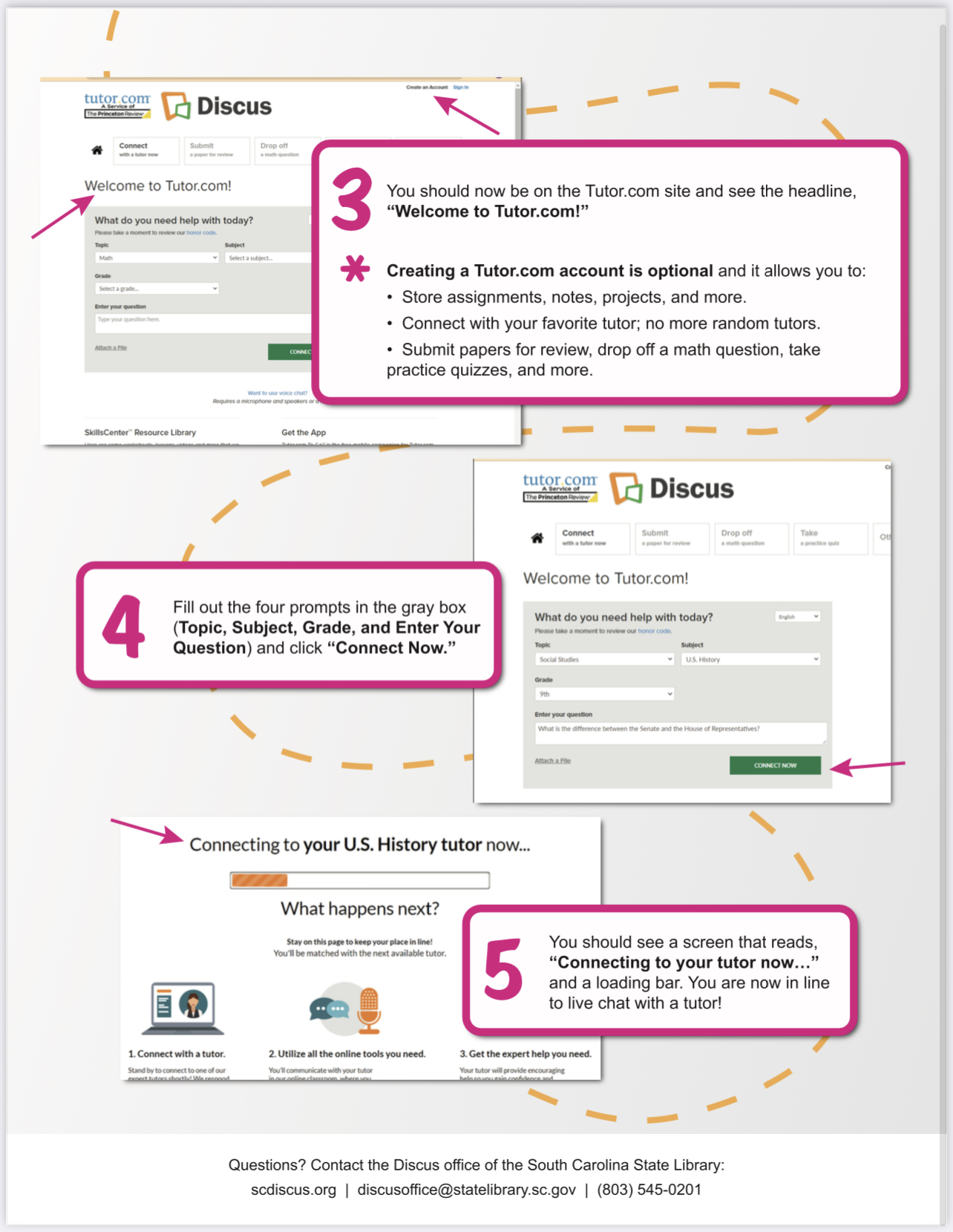Parent Resources
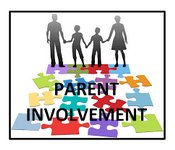
The
goal of the Parent Resource page is to provide parents with tools to
assist their children in being successful. The relationship between the
school and home is a partnership. Strong and successful partnerships
require both parties to contribute equally to the task. We solicit your
input, your time, and your support.
- Cell Phone Policy Letter
- Concussions and Head Injuries
- EBT FAQs
- Emergency Housing Vouchers
- Emergency Rental Assistance
- Emergency Responses: A Message to Parents
- ENGAGE
- EOC 23-24 Brochure
- Funding Dashboard
- Gavin's Law
- Gun Safety
- Helpful Links
- Letter Addressing the 764 Movement
- Letter on Vaping
- Mandated Reporters
- Medicaid's Annual Eligibility Review Update
- Parent Attendance Letter
- Resources
- Student Transfer Request
- Tutor.com
- Title I
- Title IX
Documents
P-EBT is an optional federal program designed to provide food benefits to children who have temporarily lost access to free and reduced-price meals at school or
child care due to closures triggered by COVID-19.
P-EBT is administered by the South Carolina Department of Education and the South Carolina Department of Social Services.
• School children who were approved for free or reduced-price meals during the last month of the 2021-22 school year. Because the covered summer period is an extension of the school year, this includes children who graduate at the end of the school year.
• Children who are determined newly eligible for free or reduced-price school meals during the covered 2022 summer period. This would include students who submitted meal applications during the summer months (June 1, 2022 - August 16, 2022). These meal applications will not be processed until late August 2022. Please contact your student’s school to determine if they are newly eligible for Summer K-12 P-EBT.
• Students who were not approved for free or reduced-price meals or not enrolled in schools that participate in the National School Lunch Program for the 2021-22 school year.
• Students who were home schooled for the 2021-22 school year.
12 P-EBT. Please check the list of participating schools on the DSS website. Children enrolled in 4K programs operated by private child care facilities are not eligible for 2022 Summer K-12 P-EBT. Children who received Children Under Six P-EBT Summer benefits are not eligible for 2022 Summer K-12 P-EBT.
K-12 P-EBT. Please check the list of participating schools on the DSS website. Children enrolled in Head Start programs operated outside of a public school are not
eligible for Summer K-12 P-EBT. Children who received Children Under Six P-EBT Summer benefits are not eligible for a Summer K-12 P-EBT.
P-EBT cards for 2022 Summer K-12 P-EBT benefits are expected to mail out after August 26, 2022. Due to the high volume of P-EBT cards entering the mailing stream, delivery times for Summer K-12 P-EBT cards will vary. Please allow a minimum of 15 business days, after the card’s mailing, for card arrival.
South Carolina’s benefit issuance schedule for Summer K-12 P-EBT is outlined below.
Benefit Time Period - Issuance Dates
Currently Eligible Students Cards will be mailed after 08/26/2022
Newly Eligible Students Cards will be mailed after 10/26/2022
district to determine the student’s free or reduced meal status. DSS does not determine eligibility status for P-EBT benefits.
• fresh, frozen, canned, or dried fruits and vegetables
• meat, poultry, fish, dairy products, eggs
• cereal, bread, pasta, rice
• any ingredients you use for cooking
• baby formula
• diabetic foods
• snack foods and non-alcoholic beverages
• seeds and plants for growing food at home
Summer K-12 P-EBT benefits CANNOT be used to buy:
• beer, wine, liquor, cigarettes, or tobacco
• vitamins, medicines, and supplements
• prepared foods, hot foods
• non-food items (pet foods, cleaning supplies, paper products, hygiene
items, or cosmetics)
https://www.fns.usda.gov/snap/retailer-locator
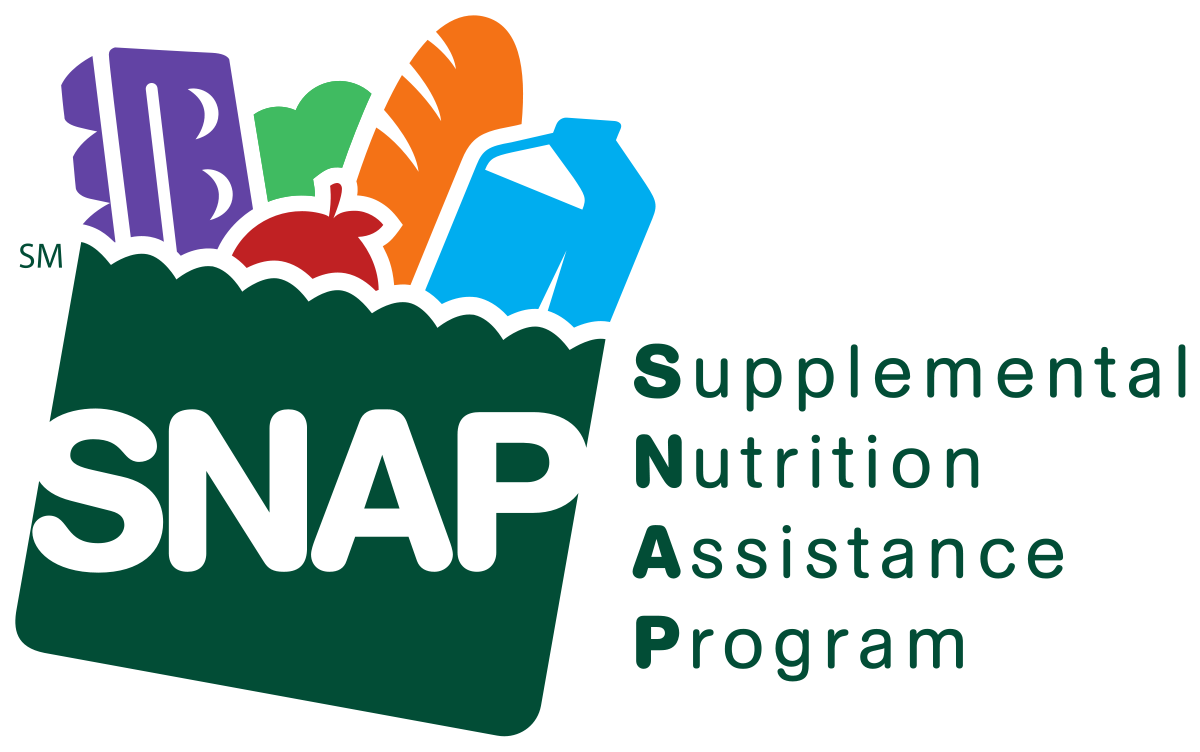
https://www.fns.usda.gov/snap/apply- to-accept.
ARP Emergency Housing Choice Vouchers
The Emergency Housing Voucher (EHV) program is available through the American Rescue Plan Act (ARPA). Through EHV, HUD is providing 70,000 housing choice vouchers to local Public Housing Authorities (PHAs) in order to assist individuals and families who are:
- Homeless,
- At risk of homelessness,
- Fleeing, or attempting to flee, domestic violence, dating violence, sexual assault, stalking, or human trafficking, or
- Were recently homeless or have a high risk of housing instability.
The Treasury Emergency Rental Assistance (ERA) program includes an unprecedented amount of funding for emergency rental assistance to help renters stay stably housed. The December 2020 COVID-19 relief package included $25 billion in urgently needed emergency rental assistance for tenants with low incomes and established the Emergency Rental Assistance program (ERA) under the administration of the U.S. Department of the Treasury. The “American Rescue Plan Act,” enacted in March 2021, provided an additional $21.55 billion for ERA for a grand total of $46.55 billion in emergency rental assistance. States (including the District of Columbia), territories, tribal governments or tribally designated housing entities, the Department of Hawaiian Home Lands, and local governments with more than 200,000 residents may be administering local programs as part of the federal Treasury ERA program.
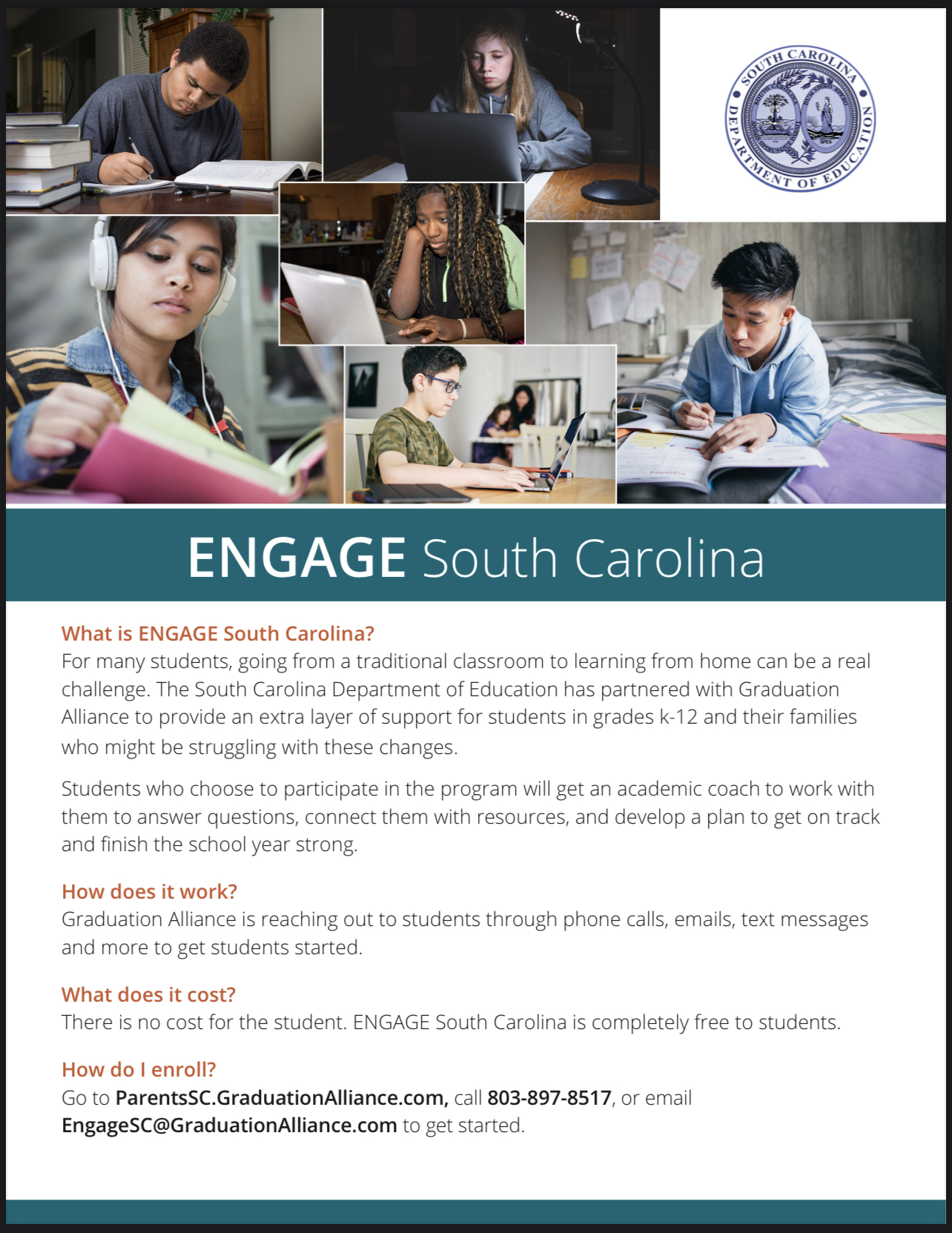
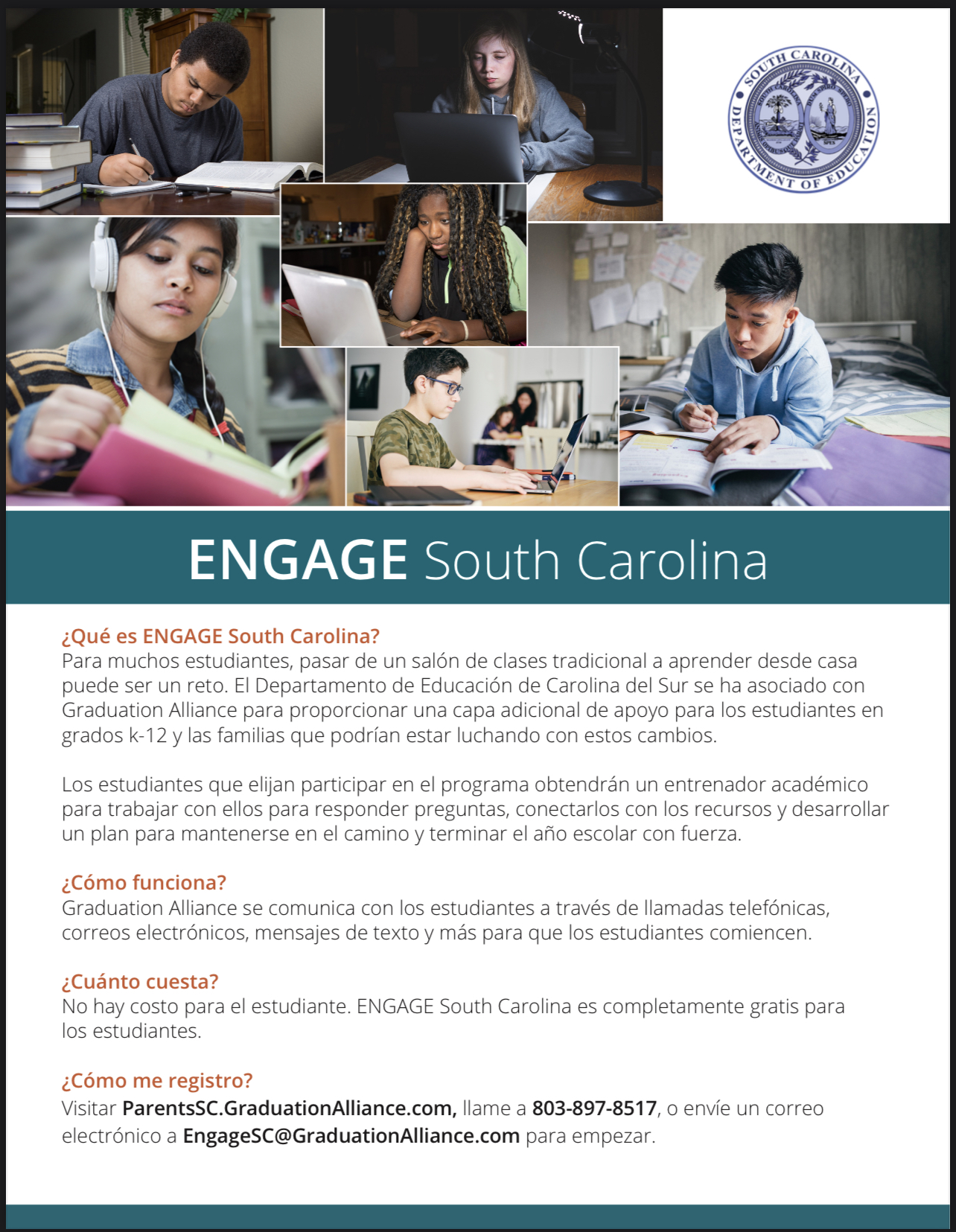
The Education Funding Dashboard summarizes funding and expenditures for K-12 education to inform the public and provide transparency on school district finances in South Carolina. Click the link below to access the dashboard.
Education Funding Dashboard
Gavin's Law-Elementary School
Video Player
Gavin's Law-Middle School
Video Player
Gavin's Law-High School
Video Player
RCSD Gun Lock Safety Instructions
- Be Smart
- Center for Parent Information and Resources
- Cerebral Palsy Guide
- FERPA
- HIPAA
- National Sex Offender Registry
- Online Reputation Management
- Rehabilitation ACT of 1973, Section 504
- SC Sex Offender Registry
- South Carolina Parents-Helping Families Everyday
- South Carolina State Department of Education
- Student and Parent PowerSchool Sign-in
- Student Transfer Application
Documents
Documents
South Carolina law requires that certain professionals report suspected cases of child abuse or neglect because they have unique opportunities to observe and interact with children. The following professionals are mandated reporters of child abuse or neglect:
- Healthcare professionals: physicians, nurses, dentists, optometrists, medical examiners or coroners or their employees, emergency medical services, mental health or allied health professionals
- Educational professionals: teachers, counselors, principals, school attendance officers
- Social or public assistance professionals: substance abuse treatment staff, childcare workers, foster parents
- Legal professionals: police or law enforcement officers, juvenile justice workers, volunteer non-attorney guardians ad litem serving on behalf of the South Carolina Guardian ad Litem program or on behalf of Richland County CASA, judges
- Undertakers, funeral home directors, or their employees
- Film processors
- Computer technicians
- Clergy, including Christian Science Practitioners or religious healers (subject to laws governing privileged communication)
However, the law encourages all persons to report.
Medicaid's Annual Eligibility Review Update - Press Release March 28, 2023
On March 28, 2023, the South Carolina Department of Health and Human Services (SCDHHS) issued a press release that provided additional information and guidance regarding the Medicaid eligibility review process that resumed on April 1, 2023. Please review the press release in its entirety. You are encouraged to inform families that the eligibility reviews are resuming and inform families of the options to return annual review forms and update information via the new document update tool.
Medicaid's Annual Eligibility Reviews Resumed (Effective April 1, 2023)
On February 13, 2023, the South Carolina Department of Health and Human Services (SCDHHS) issued a press release which stated that Medicaid annual eligibility reviews will resume beginning April 1, 2023, after a federally mandated pause during the COVID-19 public health emergency. The standard annual review process began on April 1, 2023, to which Medicaid members will begin receiving notices and review forms from the SCDHHS; however, the entire review process may take as long as 12 months to which some Medicaid members will not receive notices or review forms until March 2024.
Why is this important and why should you care? Medicaid eligible students within your district are subject to annual review. If a student/family do not complete the appropriate forms or update appropriate Medicaid information as required, they may lose their Medicaid eligibility. This could be devastating and have a tremendous impact on students/families as they would no longer have healthcare coverage. This will also impact districts as districts will no longer be able to seek Medicaid reimbursement for services rendered to those previously qualified Medicaid eligible students.
Dear Parent/Guardians:
Student attendance is one very important element in the formula for student success. State law requires students age 5-17 to attend school regularly. All stakeholders must work together in an attempt to make certain that all students are in school daily. When there is a separation from school, students miss very important academic preparations.
Most absences fall into 2 categories: excused and unexcused absences. An excused absence occurs when a student misses school and returns with written documentation stating why the absence occurred. That note can come from a medical professional or can be a hand-written note from the parent/guardian. Parents/Guardians are allowed to write excuses that do not exceed ten (10) in number. The Principal has the authority to deny hand-written excuses in excess of ten (10) or to require subsequent absences be documented by a medical professional’s note.
Absences that are labeled unexcused are those absences that do not have an accompanying written excuse. When a student accumulates three (3) consecutive or five (5) cumulative unexcused absences, State law requires a conference including the parent/guardian and school officials to develop an intervention plan to aid in improving the student’s attendance. Should a student then accumulate two (2) more unexcused absences, the student and parent/guardian will be referred to the Solicitor’s office for court intervention.
To avoid the accumulation of unexcused absences, be certain to submit excuses to your child’s school’s attendance clerk upon your student’s return to school. All excuses must be received within five (5) days of the student’s return to school.
Student attendance is a function that we all can influence. Should you have any questions regarding the laws that govern student attendance or your child’s attendance, please feel free to contact your child’s attendance clerk, Principal, or me.
Educationally yours,
Dr. Treda Nelson
Chief of Accountability
Documents
Title IX Contact: Frances T. Keller
(803) 655-2601


